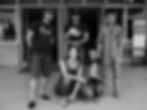


Khamdy
He comes from a faraway village and made many efforts and sacrifices to come and study in Luang Prabang. He brilliantly passed his final exams last year in order to become a school teacher. But the end of the tunnel was still very far.
In Laos, most jobs in the Administration have to be paid for. The nearer of the town the job is, the higher are the prices. Moreover, the new workers don’t get any salary during one to three years, according to the situation. Many of them can’t simply not gather the amount asked for and will never be able to get the job, even if they have passed their exams.
That is what happened to Khamdy. After several discussions with him, it was decided that he should reorientate. In Laos, there is nearly no unemployment but most « well-paid » jobs require a good English knowledge. Though there are English courses, they are very expensive.
With the help of ASAS, Khamdy has attended an intensive English course beside his present job as a managing director of a shop. He works hard and his first results are promising.
Just a smile
Jo is six years old, Viekmay 3 and Taosit 2. Like one child out of 600 in Laos, they were born with a malformation called cleft lip or hare lip. They can’t be breast-fed or correctly fed, they are victims of discrimination and should be operated on but, most of the time, the operation is too expensive for their parents.
Few local surgeons are trained for this difficult operation and few families can go to big surgery centers in order to have their children treated. (Source AMADE : Association Mondiale des amis de l’enfance = World Association of Childhood’s Friends).
ASAS met Jo as they visited a nursery school last month. Happy coincidence or not ?
The day after we met Jo we heard that a famous surgeon, professor Christian Dupuis, would come for a two-weeks mission in Laos in order to operate on children suffering from this malformation.
Then everything went quickly; there was no time to be wasted because such an opportunity is rare: we then contacted the professor, the local surgeon, the family in order to get the authorization and organize Jo’s transfer to Luang Prabang.
When we arrived at the first appointment with the surgeons, we discovered two other children, Viekmay and Taosit with their fathers, coming from far away villages.
ASAS decided to take charge of them too.




After blood tests, Taosit and Viekmay’s operation was planned for the following day. As Jo’s case was more complicated (double cleft lip), he was to be operated 4 days later. During this time Jo and his family lived in ASAS’s home.
We regularly called in hospital to get news from the first two children. The operation was a success and a few days later, they could go back home with a worthy of the name smile.
Then came Jo’s turn. Although the operation was successful, a second operation will be necessary next year so that the result is optimal. His post-operatory stay was longer than the two other children’s too, but he was very courageous,
ASAS came back to his village with him last week.
We were warmly welcome. All the inhabitants came to the little boy’s home in order to get news from him. The two parents were also glad to be home again and to be able to begin the rice harvesting. Their son’s hospitalization was longer than planned and fields have to be taken care of.
Their corn and rice fields are all what they possess and they had been delayed. ASAS then hired workmen to help them catch up the delay so that their unique source of income for next year is not imperiled
The follow-up of Jo’s treatment is planned for next year. We will inform you about what has happened of him.




Back to school
September 2016
This week children will go back to school. The new school year is being prepared and uniforms, notebooks, books and other school material have to be bought.
Through lack of money, some children won’t have the luck to get the complete schoolchild equipment.
For others the problem is different: some children who should go to secondary school won’t be able to get there. Explanation: most villages have a primary school, but secondary schools are often very far away and going there generates transportation costs (boat, bike, car, etc.) which most families can’t afford.
It was the case for Kin, Ken and Kim. These 3 children have no other choice than walking 14 km to go to school. Going on foot is possible but most of them give up. The way is long, hard and the heat suffocating.
After having discussed with their families, it was decided that the two sisters, Kin and Ken, will come to live in Luang Prabang where schools are near and English is taught. ASAS pays for a house where children in such a situation can live. We also use this place as a storage for the material we distribute in the villages.
Kim’s family wanted him to stay in the village. ASAS has thus paid for a bike, the school fees and all the school material.
All three of them are looking forward to discovering there new school and to go on the way of knowledge.
